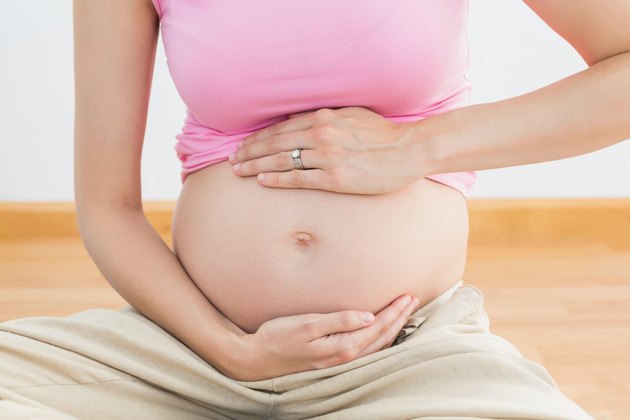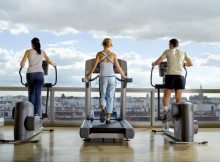Are Vibrating Exercise Machines Good for Pregnant Women?
Advertisements
The idea of building muscles and losing extra weight without increasing the intensity of exercise sounds too good to be true. This is what the vibration fitness mechanism manufacturers claim, however, it is possible to achieve the purpose of fitness through shaking and shaking through the use of full body vibration training. There is a lack of clinical research on the effect of using vibrating machines during pregnancy, but machine manufacturers and medical institutions warn against using vibrating machines after pregnancy.
Advertisements
the caricature of 1960s depicts that women are connected to the tooth vibration belt, hoping that vibration can reduce their back. Today's vibration fitness machines have made great progress compared with vibration, but their working principle is the same. This person stretches, squats or just stands or sits on the vibrating plate of the machine, and the vibration will lead to the involuntary contraction of muscles. Vibrating machines can improve muscle health, but there is no evidence that machines are better than regular exercise. The benefit of vibration is that vibration exerciser makes your muscles contract and release rapidly, which has certain influence on strength, flexibility, circulation and weight loss. There are signs that using the whole body vibration training can improve the vertical jumping ability of athletes. With increased blood flow throughout the body, continuous vibration has a similar benefit in strengthening the recommended stretch and warm-up periods prior to physical activity. The association between prolonged vibration and injury to existing pregnancies was not significant. The stories of the old ladies encourage the expired mothers to ride the bumpy car to induce labor, but in a healthy pregnancy, when the woman is not yet due, it is not known whether the bumpy or shaking will lead to labor. The Brookside society's Department of medical education, Department of Obstetrics and Gynecology, recommends that pregnant women avoid vibration types similar to those caused by hand-held drills. A study on industrial medicine, published in the American Medical Journal in 1993, explored the potential impact of long-term work-related low-frequency vibration on pregnant women and female reproductive organs. Studies have shown that vibration may play a role in increasing the risk of miscarriage, stillbirth or fetal injury. Other potential risks include reproductive organ damage, hearing loss and spinal degeneration. The types of vibration mentioned in the study are intensive, mainly focused on long-term exposure in the working environment. Until studies are available to confirm the safety of vibrating machines used during pregnancy, pregnant women should not use vibrating machines unless instructed to do so by a doctor.  discuss with your doctor about safe exercise during pregnancy. (picture: wavebreakmedia Co., Ltd. / wavebreakmedia / Getty Images)
discuss with your doctor about safe exercise during pregnancy. (picture: wavebreakmedia Co., Ltd. / wavebreakmedia / Getty Images) vibration exercise machine




